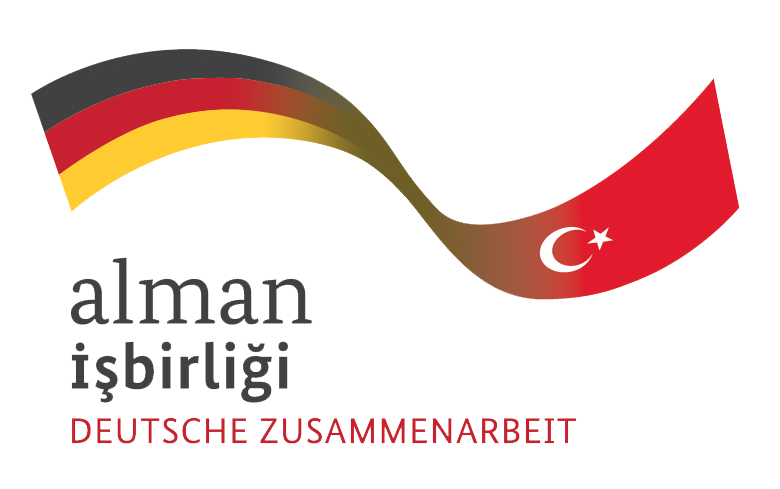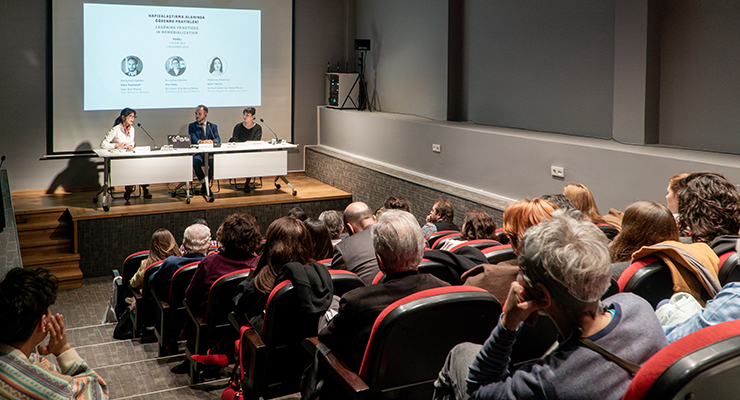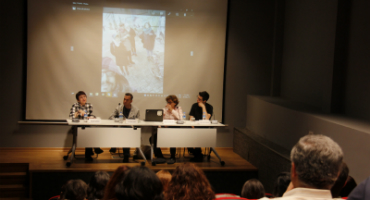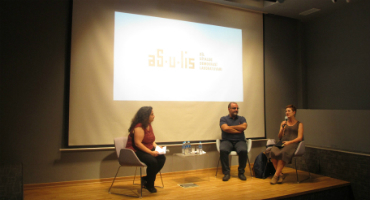The panel titled "Learning Practices in Memorialization", organized within the scope of the project "Rights based learning programs to promote democracy, equality and existence", was held on Monday, November 4, 2024, at the Hrant Dink Foundation's Havak Hall. The panel was moderated by Aylin Tekiner from The Memory Museum for Historical Justice, and the speakers included Piotr Popławski from the Sybir Memorial Museum and Aslı Yolcu from the Hrant Dink Foundation.
Aylin Tekiner, the moderator of the panel, emphasized the contribution of memory studies to democratization, despite the weak interest and curiosity about the past and the future in the current era. She reminded the audience that memory spaces are also active learning environments. Tekiner pointed out that narrating the past is also connected to how the past is carried into the present. She also addressed the positioning of memory studies within the context of global developments. She highlighted the importance of learning models that support participatory democracy, foster collective efforts, and provide opportunities for participants from different identities and affiliations to think together. She then passed the word to the first speaker, Piotr Popławski.
Piotr Popławski, in his speech, talked about the cultural and learning programs implemented at The Sybir Memorial Museum. He started by sharing that the current building of the museum was once the point from which people were forcibly exiled, and it now tells the stories of people who were enslaved and deported to Russia and the Soviet Union from the late 16th century to the mid-20th century. He emphasized that the museum is not just an exhibition space, but a place to commemorate those who were sent on inhumane journeys for weeks from this very location. Popławski pointed out that within the Sybir Memorial Museum, there are five cultural programs designed to encourage visitors to engage with the space. Regarding learning programs, he mentioned that they offer models for schools, families, and individuals. He also talked about the museum's "Museum Academy" for guides, staff, and teachers. He stressed the importance of having accessibility units to ensure that all learning processes meet the varying needs of individuals. Popławski concluded by noting that the ongoing wars in the region make the stories told at the Sybir Memorial Museum particularly relevant today.
Aslı Yolcu, in her speech, discussed the learning programs focused on memory work at the Hrant Dink Foundation. She introduced the 23.5 Hrant Dink Site of Memory and the workshops organized by the foundation, describing them as programs that strengthen a culture of empathy. Yolcu highlighted one of the key features of the space, where visitors can hear answers to their questions directly from Hrant Dink, and emphasized that meals are still prepared and eaten in the kitchen on significant days, which remains true to its original design. She pointed out that the memory space functions as a place of gathering. Yolcu also shared the founding story of 23.5 Hrant Dink Site of Memory, noting that it is one of the rare memory spaces in Turkey, and that it serves as a site of both remembrance and activism, as well as a platform for expression. She introduced the programs aimed at youth and children, such as the "Exploring 23.5" workshop, which helps young people build a connection with the space, and mentioned that the foundation's regular workshops on "Rights-Based Living" and "Inclusive Discourse" further solidify the space as a learning environment. She concluded her speech by mentioning workshops that intersect art and memory, such as "Embroidering Memory" by Damla Sandal and "Portrait of the Previous Day" by Hera Büyüktaşcıyan, which have been held at the space.
Finally, Aylin Tekiner talked about the work of The Memory Museum for Historical Justice. She explained the "Defending Democracy" educational program and the "The Past is Now" exhibition in 2023, where guided tours with young people were organized. Tekiner shared that the Defending Democracy program included workshops such as "Democracy in the Shadow", which combined drama and shadow theater techniques with rights-based concepts. These workshops aimed to give young people (aged 18-25) the opportunity to experience alternative dialogue through the identities of others. She also mentioned that the museum had organized its first physical exhibition the previous year, which involved guided tours for young people and meetings between young people and witnesses of the 1980 military coup in Turkey, in order to bring the past into the present. Tekiner discussed the challenges of creating a physical space dedicated to the 1980 coup in Turkey, noting that the need to preserve and make information accessible led to the creation of Turkey's first digital museum and human rights archive. Tekiner opened a discussion about the responsibilities of memory activists in a country where there is little practice of confronting the past. She stated that memory spaces are also spaces of struggle, and she concluded her speech with the hope of saying "never again."
During the Q&A session of the panel, the functions of memory spaces and their international context were discussed. The political nature of remembrance was emphasized, and the challenges of preserving and sustaining memory spaces in a changing political climate were explored. The dynamics of memory spaces in Turkey and Poland were also discussed, with participants gaining insight into international memory spaces while addressing the specific problems and barriers in the Turkish context.




